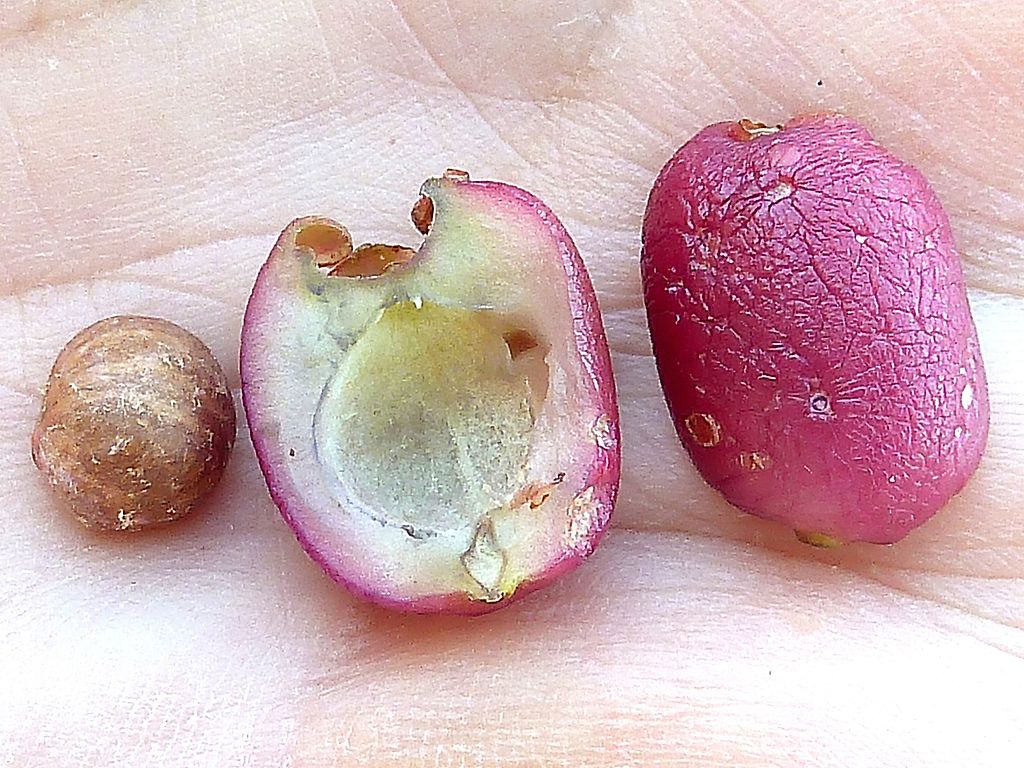Around 60 different Lilly Pilly species may be found in Australia, and all their fruits are edible, albeit some are more delectable than others. The tree’s fruits can be eaten fresh off the branch or preserved as jams, jellies, and other sweet concoctions.
Lilly Pilly is a native shrub that bears tiny exotic fruits that have a clove-like scent. This indigenous Australian bush qualifies under superfruits because they contain an extraordinarily high concentration of vitamins and antioxidants and other critical nutrients such as fruit acid and phytosterols, all of which are beneficial for the skin. The Lilly Pilly, together with Kakadu Plums, Lemon Myrtle, and Quandongs, is one of the top four Australian indigenous superfruits.
Typically, Lilly Pilly berries are only one to two centimeters long, with a round or oval shape. However, the anti-aging and astringent characteristics of this superfood fruit make it a must-have in your diet. In addition, the vitamin C and fruit acids in it assist the skin to produce more collagen and elastin.
Australian Lilly Pilly has other advantages beyond providing shade in your garden. Riberry, small-leaved Lilly Pilly, cherry satinash, cherry alder, and clove Lilli Pilli are more common names for this plant.
In certain varieties, the flesh is seedless, whereas, in others, a hard seed the size of a pea might be found. In addition to their fruity, spicy undertones resembling spices like cloves and cinnamon, they have a sweet-tart, musky flavor with metallic overtones and a tartness like goji berries. Lilly Pilly berries come in a wide array of flavors and textures, so it’s crucial to keep this in mind.
Are Lilly Pilly Berries Toxic?
Lilly Pilly berries are generally considered safe for human consumption.
In Australia, there are over 60 species of Lilly Pilly, and the fruits from all of them are edible, albeit not all of them are as tasty as others. For example, the fruits of the Creek Lilly Pilly (Syzygium australe) and the slightly tarter fruits of the Syzygium luehmannii are exceptionally excellent. Feel free to eat the fruits straight from the plant.
Brush Cherry is an evergreen shrub or tree with lance-shaped leaves. It produces tasty tiny white blooms and highly contrasting red fruit. New Zealand and Australia are home to the tree. The Brush Cherry prefers warm, sunny environments. It can withstand full sun, but in hotter climates, partial shade is ideal. The Brush Cherry must avoid frost and chilly draught. In the winter, you can keep it in a greenhouse. However, it should not be placed near a heat source. The Brush Cherry does not tolerate a lot of temperature change.
From around mid-spring to mid-summer, Brush Cherry produces spectacular clusters of blooms at the terminals of the branches. It has a dark green leaf that becomes crimson in the spring. The glossy pointed leaves are lovely and stay dark green all winter long. In late summer, it produces an abundance of gorgeous dark red berries. The scene is given an additional dimension by the rough gray bark and red branches.
Many Indigenous bush fruits have been classified as superfruits or superfoods due to their exceptionally high quantities of vitamins, fruit acids, minerals, phytosterols, and antioxidants, and not to mention vital fatty acids. All these compounds help to nourish, protect and moisturize the skin naturally.
As mentioned previously, indigenous Australians have used this plant for its antibacterial and therapeutic powers for centuries. Lilly Pilly provides various benefits in addition to providing shade in your garden.
This anti-aging superfood fruit also has astringent qualities. It includes vitamin C and fruit acids, making it an excellent booster of elastin and collagen formation in the skin, which helps to improve the skin’s firmness.
Are Lilly Pilly Berries Nutritious?
The Lilly Pilly berry is loaded with skin-care advantages, including the following:
- Vitamin C and fruit acids are abundant in this fruit
- Anti-inflammatory and anti-aging properties
- Luminizes the skin Anti-aging active ingredient
- Encourage the renewal of skin cells.
- Increases the amount of collagen produced.
- Protects against ultraviolet B (UVB) radiation
What Animals Eat Lilly Pilly Berries?
As expected, some animals are fine snacking on Lilly Pilly berries in the Australian outback. Experts in Australia agree that what you plant in your backyard will eventually be “inspected” by the native wildlife, including skunks, reptiles, and possums. There is such a thing called the “urban fringe,” where the forests and modern cities are blurred. Of course, animals will trot into the towns looking for food and for places to stay. One of the indicators that you have wildlife inspecting your backyard is if birds and mammals are eating your Lilly Pilly berries.
Experts recommend planting various plants in your backyard because these somehow support the native wildlife. But, of course, you wouldn’t want to keep any of the potentially dangerous or harmful critters. Still, nature can be harmless for the most part, and planting some berry-bearing shrubs is an excellent way to support the smaller animals, which may be finding it increasingly difficult to find good food daily.
Another advantage of planting more in your garden (apart from feeding mammals who love the sour taste of Lilly Pilly berries) is you’re helping birds stay alive. Of course, little plants and trees are essential to all wildlife, but birds who depend on trees to create their nests and generally visit are safe from predators and the elements.
Are you having problems with possums? Possums aren’t exactly harmful, but not everyone wants them around. If you don’t like possums climbing to your roof, more trees are what you need down below. Our furry friends would prefer a tree to your roof any day. It’s just that trees are in short supply nowadays.
The main picture is from Philmarin, CC BY-SA 4.0, via Wikimedia Commons.

